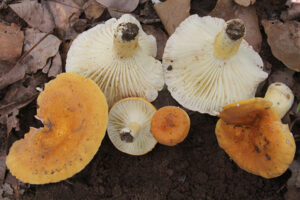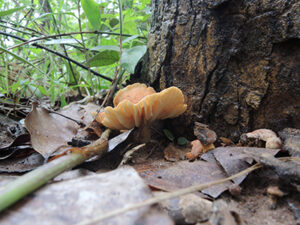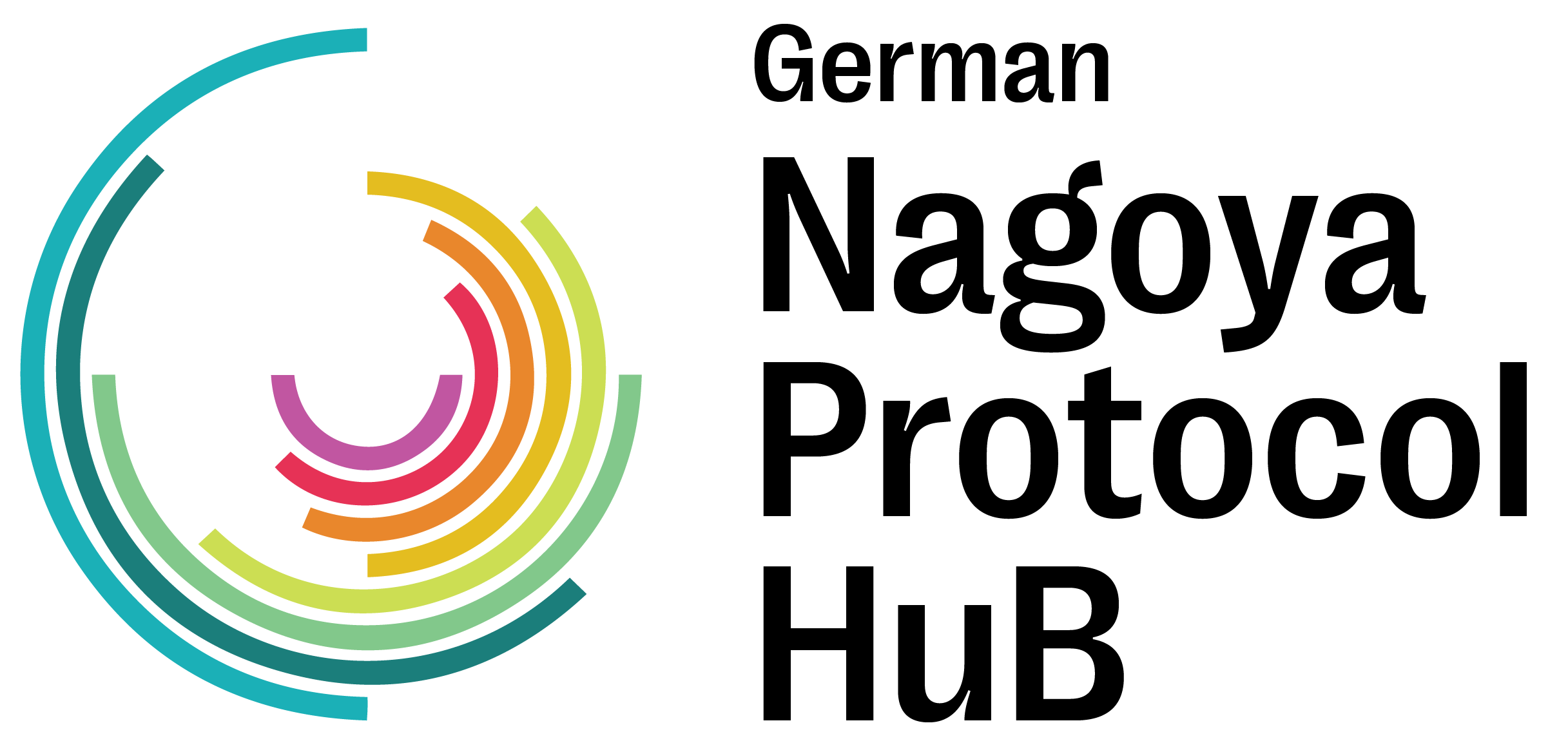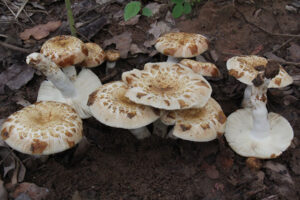ABS stories
Learning from experience: Benin
Biological material: Fungi
Research field: Ecology, evolution, taxonomy
Research: Basic, non-commercial
Focus: Investigating the ecology, morphology and taxonomy of tropical fungi. Morphological characteristics were combined with molecular sequence data for phylogenetic analyses, resulting in species new to science, new records of species for Benin and insights into the evolution of fungi. The research was combined with teaching activities.
Getting the material: Whole specimens were collected in the field by people from the university in Germany together with the collaboration partner in Benin. Further specimens were provided by the collaboration partner. The material was used by the working group in Germany and in the country of origin.
Collaboration partner: A public university in Benin
Funding: Private foundation (2015, 2016, 2017)

Lactifluus flammans by N. S. Yorou
Russula oleifera by N. S. Yorou
ABS Process
Amount of time invested full time in the process: 12 days (including both cooperation partners)
Time needed until all ABS documents were obtained: Approximately 2 years. At this time Benin was still developing its ABS procedure, which is now in place and fully operational. Processing times for ABS applications are stipulated in the relevant directive and should not exceed 60 days. The actual length of the ABS process, however, varies depending on the application lodged and the length of time needed to negotiate benefit-sharing and the conditions of access.
ABS documents obtained: Prior Informed Consent, a benefit-sharing agreement, ABS permit
Other documents obtained: Export permit, collection permit, phytosanitary certificate to facilitate international transport of the samples, Material Transfer Agreement with the collaborating university
Benin is in the process of developing its ABS framework. The ABS permit was provided to the German university under Benin’s interim measures. The relevant measures and ABS procedure in Benin are described in French in the ABS Clearing House.
The National Focal Point (NFP) was first contacted by the local collaboration partner, who managed most of the ABS process on behalf of the German university.
An application form and draft contract were provided to the NFP, who provided feedback on these documents. These were amended in accordance with the feedback ahead of a one day symposium, where the local collaboration partner was able to discuss the application directly with the ABS committee responsible for the decision to grant access. The ABS documents were finalized based on the discussion at the symposium and the ABS permit was subsequently issued by the Direction Générale des Eaux, Forêts et Chasse/Ministère du Cadre de Vie et du Développement Durable. An Internationally Recognized Certificate of Compliance has been published in the ABS Clearing House.

Cantharellus addaiensis, anonymous author

Lactifluus gymnocarpoides, anonymous author
Benefit-sharing
The parties to the benefit-sharing agreement are the German university, the collaborating university in Benin and the government of Benin.
The professor from the German university who was leading this research signed the benefit-sharing agreement. No legal assistance was provided by the university’s legal department as it was not considered necessary.
The main focus of the activities was teaching and the promotion of young scientists in Benin and other countries in tropical Africa. What were the benefits agreed to?
- Sharing of data and results as well as co-authorship of publications by the German and Beninese researchers
- On-site training was provided to students from the German and Beninese university
- Funding for study exchanges
- Provision of funds for research infrastructure or equipment
Should any potential industrial or commercial outcomes arise from the research, the parties will negotiate an additional benefit-sharing agreement.
Advice for other researchers obtaining biological material from Benin
What is suggested to other researchers who are obtaining material from Benin?

Carefully reading the information available in the ABS Clearing House is an important first step in the ABS process. You need to do this before contacting the National Focal Point in Benin (NFP). You also need to be aware that the NFP cannot always respond quickly to your enquiries, e.g. due to high workload, sickness, vacation etc. You could consider sending a friendly reminder after several weeks if you have not heard back.
![]()
Start early with the ABS process and be patient. It may take some time to organize all of the documents you need for your application. Your application can only be processed once it is complete so check it for correctness and completeness! If you are having difficulties filling out the application forms, you should contact the NFP for guidance. It is also possible that these documents need to be amended before they can be processed so you should plan enough time for any possible back and forth between you and the Beninese authorities. Negotiating the benefit-sharing agreement may also take extra time.
![]()
Although language was not a barrier, local support was essential as a number of visits to local government authorities were necessary and this would not have been possible to do from Germany. Ask your local collaboration partner/s to support the ABS process. Although due diligence remains the responsibility of researchers in Germany, it may simply not be possible to organize the required ABS documentation remotely.

Make ABS worthwhile for your collaboration partner. Engaging in the ABS process can be time-consuming. It is important to think about what the benefits of this process will be for your local partner and to communicate these clearly.





